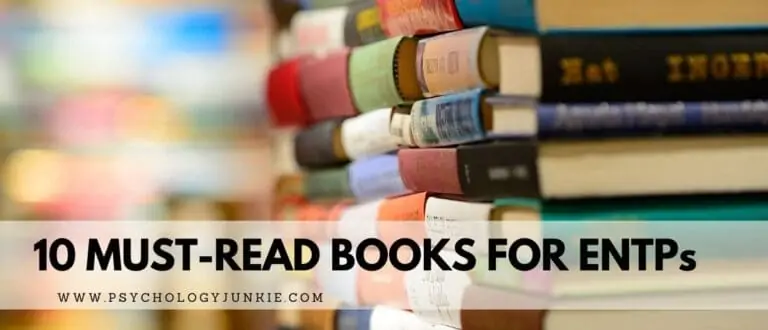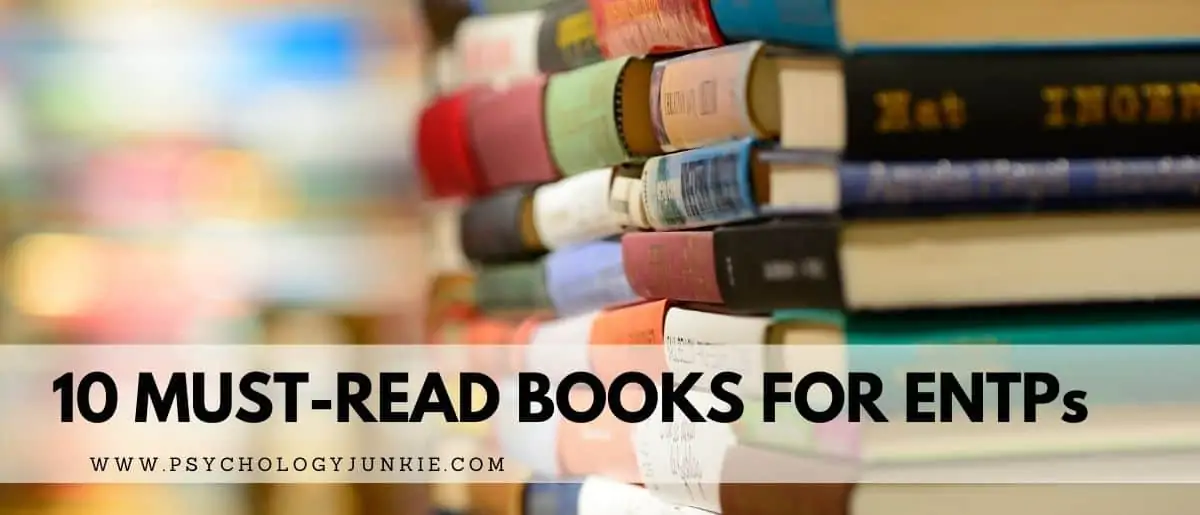The Most to Least Impulsive Myers-Briggs® Personality Types, Ranked
Are you someone who flies by the seat of your pants or do you take things slowly and carefully? People who are more impulsive often find themselves in conflict with people who are less impulsive. One type sees the other as “irresponsible” or “reckless” while the other type sees the more cautious type as too “scared” or a “dull.”
More impulsive personality types may either be a welcome reprieve for cautious types or a terrifying harbinger of doom. For impulsive types, more cautious, careful types may be grounding and stabilizing, or they may be overwhelming and stifling. How we regard impulse, and acting on our impulses, can make a big difference in our relationships and in the types of conflicts and disagreements we have with others. I see this again and again, especially in family or marriage relationships! With that in mind, I thought today I’d look at (in my opinion) the most to least impulsive Myers-Briggs® personality types and explore the beauty and possible setbacks of their different styles.

Not sure what your personality type is? Take our new personality questionnaire here. Or you can take the official MBTI® here.

Estimated reading time: 16 minutes
Why Sensing-Perceiver Types Are the Most Impulsive
From what I’ve seen as an MBTI® practitioner and what I’ve read in my studies, Sensing-Perceiver (SP) types—the ESFPs, ESTPs, ISFPs, and ISTPs—seem to be the most impulsive personality types. For SPs, life is about adventure and freedom, and every moment is rife with opportunity. SPs love to have open schedules and flexible lifestyles so that they can be free to follow their impulses wherever they might lead them. Jumping from one experience to another, they take in life in all its detail and all its beauty, waiting for the next opportunity to seize them.
Psychologist David Keirsey observed this propensity for impulsivity in his book, “Please Understand Me: Character & Temperament Types”:
“SPs are, in essence, impulsive. They want to be impulsive. To be impulsive is to be really alive. SPs covet their impulses, enjoy feeling them well up within; and they love discharging them, like setting off an explosion. SPs even feel guilty if they don’t have impulses!”
Indeed, the essence of being truly alive, as Keirsey so aptly put, is to engage with one’s impulses genuinely and unabashedly. It is here that the SP types feel most satisfied, embracing the raw, unedited opportunities of life as they happen.
Ranking the Personality Types: From Spontaneity to Cautiousness
Most Impulsive: The ESFP
If you’re looking for someone to go on a spontaneous road trip with you or climb out your window at night to see the stars, the ESFP is your person! ESFPs are true masters of living in the moment. They are always on the lookout for exciting opportunities that resonate with their hearts and instincts. They embrace the present and believe that the life best lived is one where they are free to follow their hearts, pursue adventure, trust their instincts, and explore the world and all its wonders. Charismatic, fun-loving, free-spirited, and passionate, ESFPs embrace seizing the day unlike any other type.
“It is not enough to just have a feeling; it is important to act on that feeling. They (ESFPs) accomplish an amazing amount, often juggling a wide range of projects – all with a sense of style….They have a healthy respect for freedom, theirs and others. Freedom is so important to them that anything that takes it away meets with strong resistance, even on small matters. Freedom from boredom gives them the strength to do what they need to but don’t want to. For them, anything is possible as long as they have freedom!” – Linda Berens, The 16 Personality Types: Descriptions for Self-Discovery
Find out more about ESFPs: What It Means to be an ESFP Personality Type
#2 – The ESTP
The ESTP, often seen as the quintessential ‘doer,’ thrives on action and is driven by an insatiable appetite for new experiences. These are the people who are quick on their feet, reacting to the world in real-time with sharp senses and a practical mindset. ESTPs have an intrinsic ability to read their surroundings and adjust their actions on the fly, making them incredibly adept at making the most of the moment.
“The freedom to act is essential to their well-being. Constraints and limits become challenges to work around, but too many of them can be deadly. They are talented at tactical prioritizing. Everything gets subordinated to their priorities as they “stay the course” to do what needs doing. Yet when they see something isn’t working the way they want, they do not hesitate to change their approach or even abandon the project entirely.” – Linda Berens, The 16 Personality Types: Descriptions for Self-Discovery
ESTPs are magnetic personalities, often finding themselves at the center of the action. They possess a boldness that is both admirable and daunting, with a presence that can dominate the room. Their impulsivity is not just a trait but a tool they use to navigate through life’s challenges and opportunities, often leading to them becoming persuasive leaders or shrewd crisis-managers.
Discover more about ESTPs: 24 Signs That You’re an ESTP, the Daredevil Personality Type
#3 – The ISFP
ISFPs are the quintessential free spirits, moving through life with a gentle spontaneity that is compellingly attractive. They prefer to live according to their own timeline, often eschewing conventional routines in favor of moments filled with personal significance and joy. They are less interested in planning out every detail than they are in embracing the authentic experiences that present themselves.
As the mother of an ISFP, I see this need to be free daily. They do their best creative work, and their best interpersonal work, when they can follow their heart, not the calendar or the prescribed method. It’s during these spontaneous moments of exploration that the true gems of their personality can be free to erupt and surprise you with a gorgeous piece of art (if an ISFP is inclined that way), a surprisingly astute bit of insight, or an opportunity for fun that you might never have noticed otherwise.
The world for the ISFP is a canvas for authentic self-expression, and their impulsive nature is the brush with which they leave their mark upon it.. ISFPs are deeply connected to their inner values and feelings, and when inspiration strikes, they follow it with the intensity of a calling. These individuals possess an innate ability to stay true to themselves, often expressing their essence in bursts of creativity and passion.
Find out more about ISFPs: How ISFPs Say “I Love You”
#4 – The ISTP
Calm and cool, ISTPs may lack the boisterous enthusiasm of the ESFP and ESTP personality types, but they are still far more impulsive than many other types. For them, having as little external obligations and rules is crucial so that they can be free to explore, learn, and discover. I’ve called ISTPs the “Vigilantes” because they play by their own rules and have an inner set of principles that nobody else can dictate. On top of that, they are quick, pragmatic, and fast to respond in crisis situations where pre-planning is almost never an option. While other types might be worrying about rules, strategies, and potential risks, ISTPs are out there taking action, fixing problems, and troubleshooting with, in many situations, very little time for preparation.
Curious about ISTPs? Read 12 Amazing Fictional ISTPs
#5 – The ENFP
I once had an ENFP friend who would regularly call me up out of the blue to go on a drive and brainstorm, make a creative project, or pursue a new business idea. There was always a sense that anything was possible with them, that the world could change overnight! Anyone else who’s been friends with an ENFP will be familiar with this pattern. Open-hearted, enthusiastic, and imaginative, ENFPs bring a magic and wonder to life that inspires us. Their intuition and perceptive abilities allow them to see possibilities everywhere, possibilities they can’t wait to explore (and, sometimes, bring you along for the ride!). For the ENFP, life is meant to feel boundless and they want to be free to follow the impulse of their imagination. Many ENFPs work for themselves so they can have the freedom to shift plans according to their ideas and impulses, and others insist on having zero plans on their weekends so that they can trust whatever idea springs into their mind and shift gears as necessary.
Discover more about ENFPs: 10 Amazing ENFP Anime Characters
#6 – The ENTP
ENTPs, dubbed the ‘trailblazers,’ exude a confidence that is both intriguing and slightly irreverent. They thrive on the thrill of mental sparring and are almost perpetually ready to explore new ideas. Their impulsive nature is evident in their quick wit and their ability to pursue “outlandish” possibilities on a whim. They’re less concerned with maintaining the status quo than they are with testing the bounds of what’s possible. They’ll quickly scrap the plan if a newer, better idea sparks their imagination and leads them away with it. You can see this in famous ENTPs like Benjamin Franklin, who was propelled by an unrivaled fervor for innovation and discovery. He didn’t just do one thing, he adeptly traveled in the world of politics, science, and societal reform. Like many ENTPs, he craved transformative experiences, even if it meant changing his direction and constantly following new paths. His restless curiosity and inventive genius led to momentous contributions including the lightning rod, the Franklin stove, and the bifocals, which are still recognized as markers of his legacy.
“Order … with regard to places for things, papers, etc. I found extremely difficult to acquire. … In truth I found myself incorrigible with respect to order.” – Benjamin Franklin
Find out more about ENTPs: A Look at the ENTP Leader
#7 – The ENFJ
ENFJs, who I’ve called ‘the mentors’, can be very planful and very impulsive at the same time. Though they usually prefer to have a clear direction, their innate desire to respond to the needs of others often leads them to make rapid and seemingly impulsive decisions. “Follow the plan….at least until someone needs a shoulder to cry on” could be their motto. When someone else’s feelings are involved or an immediate need arises, ENFJs are particularly quick to switch gears. They have an exceptional ability to respond to emotional cues, often adjusting their planned course of action to provide support or resolve tension. This duality – the mix of strategic foresight with the agility to act on the spur of the moment – exemplifies the dynamic character of the ENFJ personality type, constantly oscillating between organized patterns and the heartfelt impulse to make a positive impact on those around them.
Want to know more about ENFJs? Read ENFJs, INFJs and Empathy Burnout
#8 – The ENTJ
ENTJs carry themselves with an aura of certainty and command that is unmistakable. It can even be a little intimidating for some of us (not me, of course, just…..other people). Often seen as the archetypal leaders, they have little patience for hesitation and are known for their ability to make swift, decisive actions in pursuit of big goals. For ENTJs, having a broad vision and an overarching plan is a must; however, they are all too aware that real-world situations require adaptability and the courage to take bold steps without knowing every potential outcome. Julius Caesar, often typed as an ENTJ, personifies this quality of strategic, yet dynamic and decisive leadership. His famous words, “Veni, Vidi, Vici” (I came; I saw; I conquered), encapsulate the ENTJ’s philosophy – one that values a clear direction but is ready to take immediate action, confident in their ability to adjust their tactics and strategies on the fly. Caesar’s integration of quick decision-making within a strategic framework allowed him to triumph in varied circumstances, from the political arena to the battlefields of Gaul, demonstrating the typical ENTJ approach of leading with foresight and adjusting with boldness.
Discover more about ENTJs: 10 Things You’ll Relate to if You’re an ENTJ
#9 – The INFP
I like to call INFPs ‘the dreamers’ because not only are they constantly finding imaginative ideas and possibilities, they also remind us of our dreams and deeper desires. When it comes to impulsivity, INFPs believe in keeping their schedule fairly open and flexible so that they can follow their heart if it leads them down a spontaneous new path. That said, INFPs are not nearly as impulsive as many of the other types listed here. When a decision arises they need time to assess whether it lines up with their inner values and they will often examine their impulses in light of their conscience and whether or not something feels “right.” That said, they are still Perceivers at heart, and Perceivers like being free to trust their impulses and tend to eschew tight schedules, rules, and rigid deadlines so that they can be open to a certain degree of impulsivity. But for an INFP that impulsivity might be less “let’s go on a random road trip” (although it could be now and then) and more “let’s stay up and binge watch this amazing TV show even though I have work at 7 AM in the morning.
Find out more about INFPs: 24 Signs That You’re an INFP, the Dreamer Personality Type
#10 – The INTP
INTPs, or ‘The Prodigies,’ are driven by insatiable curiosity, manifesting in sudden bursts of theoretical exploration. This personality type is less impulsive in the traditional sense but can become quickly engrossed when a new idea captures their imagination, often diving deeply into thought experiments and complex problems without a moment’s hesitation. This may mean that they stay up until 4 AM studying a new idea or swapping thoughts with others on Reddit when they have work the next day. It could mean that they get tired of staying in one place because they know everything about it, packing up and moving to go somewhere else where there are new places and landscapes to explore. At the same time, INTPs have a certain love of their routines and the familiar as well. There’s always a push-pull inside them; a desire to explore the new and novel and a simultaneous comfort with routines and familiar pastimes and details that give them a sense of belonging. Many INTPs feel an urge to go explore and try new things and the urge to stay in their comfort zone at the same time!
Curious about INTPs? Read The Childhood Struggles of INTPs
#11 – The ESTJs
ESTJs, often referred to as the ‘Supervisors’ or ‘Captains,’ value structure and order, but they are not immune to the occasional impulsive action, especially when they see an opportunity to improve a process or implement a practical solution. Their decisiveness and confidence can lead them to make swift, authoritative moves to ensure that their plans are executed efficiently. An ESTJ’s impulsiveness is always backed by logic and a desire to maintain functional systems, whether in their personal life, at work, or within their community. They’re not likely to jump in the car and drive to Vegas at 2 AM, but they may jump on a business opportunity quickly if they see that it is a high chance of success. When they see opportunities to improve their lives, if those opportunities are backed by logic and a trustworthy success rate, they can move to action on those opportunities rapidly. And in their leisure time they’re not immune to the occasional siren call of a random adventure or trying something new. But of the 16 personality types, they are one of the types that tend to prefer having a schedule and sticking to it, making sure their responsibilities and duties are taken care of before doing anything impulsive.
#12 – The INFJs
INFJs, ‘The Mystics,’ hold a vision for humanity that often leads them to engage impulsively in acts aimed at personal and collective development. As an example, an INFJ walking down the street may see a homeless person and stop to buy them breakfast even if it will make them late for work. Later that day they might come up with a plan to pack care bags with their friends to deliver to homeless people in their city on the weekends. When it comes to causes that stir their hearts, INFJs can be fairly impulsive and flexible. But when it comes to other decisions, they tend to be more cautious and thoughtful. They need time to plan and foresee outcomes, consider the ripple-effects of their actions and where they might lead. Impulsivity, to the INFJ, may at times go against their intuition; a process which requires a deeper understanding of the inner patterns, insights, and connection to their inner world.
Find out more about INFJs: 24 Signs You’re an INFJ, the Mystic Personality Type
#13 – The INTJs
INTJs, known as ‘The Strategists,’ may seem reserved and systematic, but when an innovative idea captures their interest, they engage with surprising speed and agility. While they typically favor planning and strategy, they are also prone to moments of spontaneous inspiration that prompt immediate, yet calculated, action. An INTJ’s impulsive behavior often arises when intellectually challenged or when they envision a more efficient approach to achieving their goals. Another time when you might see an INTJ being impulsive is when they are in a state of “grip” stress; this happens when an INTJ has tired out their usual go-to resources (intuition and thinking) to solve a problem and it’s still manifesting in their lives. Over time, this can lead to a spike of intense stress or a gradual wear-down of the INTJ’s typical way of thinking and the INTJ may suddenly become more impulsive and reckless. You can find out more about that in my article: What You’re Like During Grip Stress, Based On Your Myers-Briggs® Personality Type.
Discover more about INTJs: The Childhood Struggles of INTJs
#14 – The ESFJs
‘The Defenders,’ or ESFJs, are usually seen as the epitome of sociability and dedication to maintaining harmony. They love their routines and having a sense of consistency and predictability in life. Knowing what’s about to happen makes them feel safe and a lot of impulsivity can make them feel out of control or stressed. However, they also have a spontaneous side, especially when responding to the emotional needs of those around them. An ESFJ will not hesitate to drop everything to support a friend in distress or to throw an impromptu gathering to celebrate a loved one’s success. Their impulsive actions are heart-driven and centered around creating stronger community bonds and making sure everyone feels valued and cared for.
You might also like: Why You Feel Like You Were Meant for Something More, Based On Your Myers-Briggs® Personality Type
#15 – The ISFJs
ISFJs, also known as ‘The Protectors,’ are often characterized by their reliability and a methodical approach to life. They, like most Sensing-Judgers, are deeply fond of their routines and a sense of stability and consistency in life. Nevertheless, they are surprisingly adaptable and capable of swift, impulsive action when it serves the well-being of their loved ones or preserves harmony within their environment. Their sense of duty may prompt immediate responses to critical situations, particularly when their protective instincts are triggered. While ISFJs prefer structure and predictability, their deeply rooted sense of compassion can lead them to act unpredictably in the name of support and altruism.
Find out more about ISFJs: 24 Signs That You’re an ISFJ, the Protector Personality Type
#16 – The ISTJs
And finally, the ISTJs, or ‘The Detectives’ are the least impulsive personality types. ISTJs are careful and cautious, creating steadiness and stability in their lives. Having a sense of tradition, a sense of history in a place is important to them. They enjoy knowing what to expect, how their day will go, and having a clear schedule and calendar to abide by. If you ask them to do something impulsively, chances are they’ll check their calendar app, need some time to think, and by the time they’ve come to a decision you (if you’re an impulsive type) will have already gone off to do the thing! Yet this doesn’t mean they are incapable of impulsivity, although it may make them feel a little unsteady. When they see a risk to their core values or to the well-being of their community, they may quickly jump into action to try to solve the problem. The ISTJs’ impulsiveness is rarely fueled by emotion or the need for novelty, but rather by a steadfast commitment to their principles, duty, and the preservation of something vitally important to them.
You might also like: The Unique Intelligence of Each Myers-Briggs® Personality Type
What Are Your Thoughts?
Now that we’ve explored the different ways impulsivity shows up across various Myers-Briggs® Personality Types, I’d love to hear your thoughts! Do you find these observations resonate with your own experiences? Whether you agree or disagree, I’d love to hear what you think! Your perspective is valuable, and getting feedback always helps me to refine my ideas and make them more accurate.
Find out more about your personality type in our eBooks, Discovering You: Unlocking the Power of Personality Type, The INFJ – Understanding the Mystic, The INTJ – Understanding the Strategist, and The INFP – Understanding the Dreamer. You can also connect with me via Facebook, Instagram, or Twitter!
This article contains affiliate links to books on Amazon or courses on Personality Hacker. If you purchase one of these books or courses, I get a small kickback that I can use to pay for hosting and other demands of this site. I only recommend books I love.
Sources:
Please Understand Me: Character & Temperament Types by David Keirsey and Marilyn Bates (Gnosology Books, 1984)
The 16 Personality Types: Descriptions for Self-Discovery by Linda V. Berens and Dario Nardi (InterStrength Publishing, 1999)
Understanding Yourself and Others™ An Introduction to Interaction Styles 2.0 by Linda V. Berens (InterStrength Publishing, 2008)













